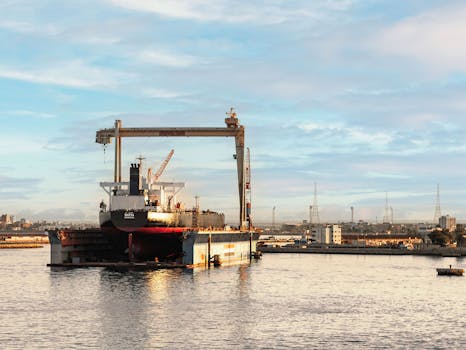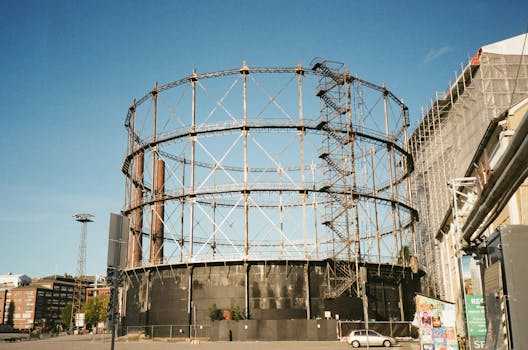
**
Tata Steel's ambitious plan to decarbonize its steelmaking operations took a significant leap forward with the commencement of construction on a new electric arc furnace (EAF) at its Port Talbot steelworks in South Wales. This landmark project represents a monumental shift towards sustainable steel production, promising a cleaner future for the region and the global steel industry. The £1.8 billion investment signals Tata's commitment to net-zero emissions and reinforces its position as a leader in green steel technology. This investment is crucial for securing the long-term future of Port Talbot, a site that has been a cornerstone of the Welsh economy for generations.
A Green Steel Future: The Port Talbot Electric Arc Furnace
The new EAF at Port Talbot is a key component of Tata Steel's ambitious decarbonization strategy. By replacing the current blast furnaces with this modern technology, Tata aims to dramatically reduce its carbon footprint. The EAF uses electricity to melt scrap metal, significantly lowering CO2 emissions compared to traditional blast furnace processes that rely heavily on coal. This transition marks a pivotal moment in the global steel industry's journey towards sustainability. The construction signals a major step towards achieving the UK's ambitious climate change targets and positions Tata Steel as a frontrunner in green steel manufacturing.
Key Features and Benefits of the New EAF:
- Reduced Carbon Emissions: The EAF's reliance on scrap metal and electricity dramatically reduces carbon dioxide emissions compared to traditional blast furnaces, significantly contributing to Tata Steel's net-zero goals.
- Enhanced Efficiency: Modern EAF technology boasts improved energy efficiency, leading to lower operational costs and a smaller environmental footprint.
- Increased Flexibility: The EAF allows for greater flexibility in production, adapting to fluctuating market demands and various steel grades.
- Modernization of Port Talbot: The investment signifies a significant modernization of the Port Talbot steelworks, securing its long-term viability and creating skilled jobs in the region.
- Circular Economy Integration: The EAF's use of scrap metal promotes a circular economy approach, minimizing waste and maximizing resource utilization.
Impact on the UK Steel Industry and the Welsh Economy
The construction of the EAF at Port Talbot has far-reaching implications for the UK steel industry and the Welsh economy. This significant investment secures thousands of jobs directly and indirectly, boosting the local economy and strengthening the UK's steel manufacturing sector.
Economic and Social Benefits:
- Job Creation and Security: The project ensures the long-term employment of thousands of skilled workers in Port Talbot and the surrounding areas.
- Economic Growth: The investment will stimulate economic activity in the region, attracting further investment and supporting local businesses.
- Supply Chain Development: The project will bolster the local supply chain, creating opportunities for businesses supplying materials and services.
- Technological Advancement: The adoption of cutting-edge EAF technology positions the UK at the forefront of sustainable steel production.
- Community Regeneration: The modernized Port Talbot steelworks will contribute to the regeneration of the local community, providing renewed optimism and opportunities.
Addressing Concerns and Challenges:
While the project presents significant benefits, challenges remain. Securing a reliable and affordable supply of scrap metal will be crucial for the EAF's operation. Furthermore, addressing the energy demands of the EAF, particularly in relation to the UK's energy grid capacity, is another important consideration. Tata Steel is actively collaborating with government and industry partners to mitigate these challenges and ensure a smooth transition to sustainable steelmaking.
Technological Advancements and Sustainable Steel Production
The EAF technology employed at Port Talbot represents the latest advancements in sustainable steel production. Its efficiency and reduced carbon emissions are crucial in meeting global targets for reducing greenhouse gas emissions and combatting climate change.
Technological Innovations:
- Advanced Automation and Control Systems: The EAF incorporates advanced automation and control systems for optimizing energy consumption and improving production efficiency.
- Smart Manufacturing Techniques: The implementation of smart manufacturing techniques allows for real-time data analysis and process optimization, enhancing productivity and sustainability.
- Waste Reduction Strategies: Tata Steel is committed to minimizing waste and implementing comprehensive waste management strategies throughout the entire production process.
- Water Management: Efficient water management systems are integrated into the design to minimize water consumption and protect local water resources.
The Future of Steelmaking: A Sustainable Path Forward
The construction of the electric arc furnace at Port Talbot marks a significant turning point in the history of steelmaking. It signals a decisive shift towards a more sustainable and environmentally responsible approach to steel production. This project sets a powerful example for other steel producers worldwide, demonstrating the feasibility and benefits of transitioning to greener technologies. The success of this initiative will not only secure the future of the Port Talbot steelworks but also pave the way for a cleaner, more sustainable future for the global steel industry. This commitment to green steel is crucial for achieving net-zero emissions globally and underscores Tata Steel's dedication to a greener tomorrow. The future of steelmaking is undeniably green, and Port Talbot is leading the charge.




















